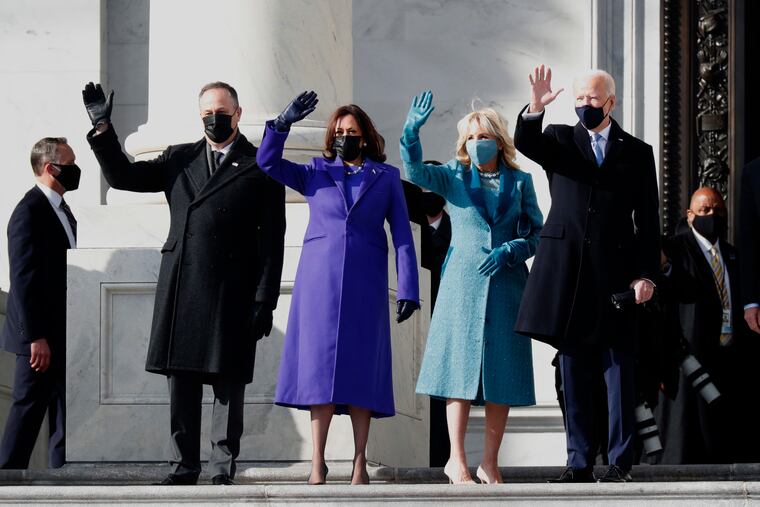Biden’s call for unity is welcome, but that won’t be easy | Editorial
Unity doesn’t require agreement. It requires a shared confidence in our systems, a shared sense of truth, a shared belief that fairness will prevail.

As Joseph Biden was sworn in as our 46th president, he took on the role of a wise patriarchal figure who, after breaking up a fight among his children, tried to talk sense and soothe at the same time. (It is no small thing to celebrate the fact that for the first time, a matriarchal figure was also on stage to back him up.) That fight has left many wounds — as well as outright casualties — and Biden leaned on words designed to both comfort and inspire — dignity, honor, tolerance, humility, and most frequently, “unity.”
His wisest point: that unity doesn’t require agreement. It does require a shared confidence in our systems, a shared sense of truth, a shared belief that fairness will prevail.
Four years of Donald Trump’s divisiveness and corrosiveness was central to our disunity, but he was opportunistic in widening rifts already in place.
Unity will require looking clear-eyed at those rifts. That includes the fact that we have created an economy that doesn’t work for too many of its members. Lost jobs, lackluster wage growth, and increasing economic disparity will continue to breed divisiveness. Unity will require a rebuilt economy that restores equity and fairness.
The pandemic’s impact on our social and mental health, imposing isolation, fear and grief is profound. An effective and immediate vaccination program can protect our physical health, but we must also address the aftereffects on our collective mental health. Pandemic-imposed isolation has undoubtedly contributed to increasing insularity and divisiveness. How do we vaccinate against that?
Finally, we have witnessed over a decade of increasingly bitter partisanship in our government institutions. Congress is dysfunctional in its divide, and if it insists on adhering to its failure to work for the common good instead of narrow private interests, unity will remain a rhetorical nicety.
Democracy doesn’t require full agreement on every policy position, but shared confidence in the process through which we solve disagreements. One of the elements of the American governance structure that undermines democracy itself is gerrymandering. When legislative districts — for the General Assembly or Congress — are drawn in a way that guarantees a win for one of the parties, extreme forces thrive. Instead of finding agreement through the hard work of debating policy differences between the two parties in a general election, incumbents are aware that their only real challenge is in the primary.
Opposing political gerrymandering shouldn’t be a partisan issue. It should be in the interest of both parties to be able to compete everywhere, in every policy debate, for the vote of every voter.
The same goes for expanding the right to vote. The more people vote, regardless of political leaning, the more responsive our elected officials must be to the population as a whole. Continued attempts to build barriers to full participation in elections — and those attempts thrive in Pennsylvania — allow politicians to count on a small group of people who are likely to vote to keep them in office, and to disenfranchise everyone else. Fair elections and encouraging voting — the incentive for our elected officials to reach out instead of digging in — are key to fixing our divide.